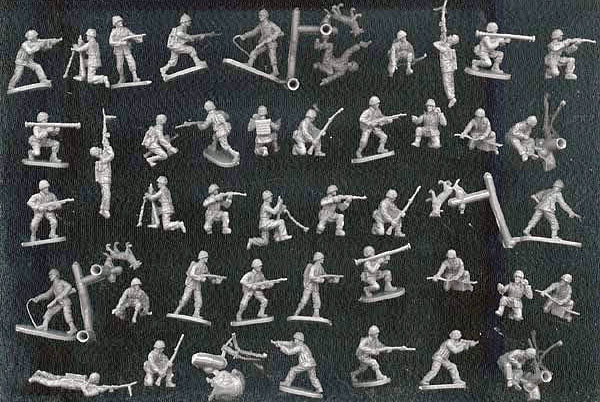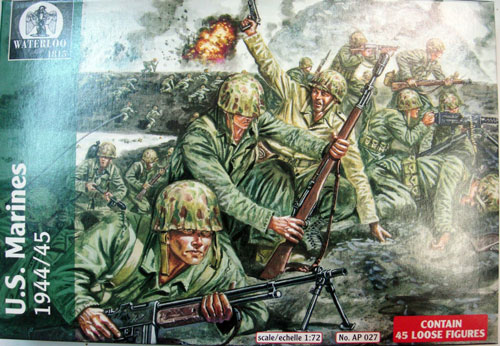 The unwarrantedthe The death of over 100,000 civilians whose lives were sacrificed was in the 1945 Battle of Manila. The casualty count was that immense because advancing US troops and their commander,
The unwarrantedthe The death of over 100,000 civilians whose lives were sacrificed was in the 1945 Battle of Manila. The casualty count was that immense because advancing US troops and their commander, Gen. Douglas MacArthur, did not consider that these non-American civilian lives deserved to be protected and secured by US troops whose role after all is to absorb the risk of war. But I wonder if anyone has even cared to remember this national tragedy?
Gen. Douglas MacArthur, did not consider that these non-American civilian lives deserved to be protected and secured by US troops whose role after all is to absorb the risk of war. But I wonder if anyone has even cared to remember this national tragedy? 
The Battle of Manila, 3 February 1945 to 3 March 1945, was the only struggle by the United States to capture a defended major city in the Pacific War. Manila was one of few major battles waged by the United States on urban terrain in World War II. It is arguably one of the most recent major urban battles conducted by U.S. forces. The case of Manila offers many lessons large and small that may be instructive for planning future urban operations. Basically, Manila was an instance of modern combined arms warfare practiced in restrictive urban terrain in the presence of large numbers of civilian inhabitants. Manila provides many lessons relevant both to the combined arms aspect of the struggle and to the civilian affairs aspect of the struggle.

Next to Warsaw, Manila registered as the city most devastated by World War II. Early accounts obviously peddled by the victors had imputed the enormous civilian casualty to acts and atrocities perpetrated by retreating Japanese forces. But historians had since debunked this reason. It was the US’ relentless bombardment and razing of Manila coupled with the callous disregard for civilian lives that turned any inhabitant in no man’s land a sitting duck for the remorseless American assault on the Philippine capital 
 city in 1945. However, this is not to deny the fact that Japanese forces had indeed committed some of the most barbaric and the most vicious atrocities that matched the brutishness of the ancient savage. The retreating Japanese forces showed no mercy. They raped and they slaughtered with wanton abandon. Babies were flung to the air and skewered by bayonets as they fell. Samurai swords swished in a mad harvest of decapitated heads
city in 1945. However, this is not to deny the fact that Japanese forces had indeed committed some of the most barbaric and the most vicious atrocities that matched the brutishness of the ancient savage. The retreating Japanese forces showed no mercy. They raped and they slaughtered with wanton abandon. Babies were flung to the air and skewered by bayonets as they fell. Samurai swords swished in a mad harvest of decapitated heads
But for all the terrifying stories of Japanese atrocities, the greatest number of civilian casualties was dealt by the careless and cold-blooded American bombardment. Post-war photos bear testimony to the virtual annihilation of all landmarks south of the Pasig River. The US forces were situated north of the Pasig River and by February 1945, there was hardly any Japanese air force to contend with. Manila was held by Japanese marines who were cut off from the main Japanese force that retreated to Northern Luzon with the legendary “Tiger of Malaya”, Gen. Tomoyuki Yamashita, to make their last stand there
MacArthur liked to avoid unnecessary engagement of troops. For the most part, his Pacific campaign strategy – dubbed the envelopment strategy – avoided unnecessary troop engagement and instead isolated enemy bases from their supply lines. MacArthur posited: “Never take with bravado what you can attain with strategy”. And that is exactly how over 100,000 innocent lives ended up as sacrificial lambs to MacArthur’s troop preservation strategy. Instead of sending in US troops – whose job is to take combat risks and minimize civilian casualties – MacArthur opted for the deployment of the artillery and the air force to clear the Japanese held section of the city. In the process, Japanese defenders as well as innocent civilians were killed; with the greatest number of casualties being those of the civilian non-combatants. Yet days earlier, the US commanders opted to send their troops to secure American prisoners in the University of Santo Tomas. How else can we view this contrast in US military approach except to conclude that the lives of US troops may only be risked when Americans and only American lives are on the line?Many good fighting men in America called Macarthur a coward but was he?

He was ordered to leave.
There are much better reasons to criticize him.
He knew the Japanese had bombed Pearl Harbor yet he took no action against Japanese bases. Instead he allowed his air force to be attacked on the ground. He allowed the retreat into the Bataan Peninsula where his army lacked everything, food, water, ammo. It was a big mistake.
He was hard to get along with, pig headed etc.He was like Mark Clark in that he wanted his name in lights.Dugout Doug was ordered off of Corregidor by President Roosevelt himself because of the fear of what the Japanese would do to him if he was captured. It is said that MacArthur never forgave Roosevelt for that order.Douglas Macarthur as a general was a huge Fraud...afterPearl Harbor was attacked the U.S knew that Japan Philippines Philippines  resistance. Macarthur was losing men though left and right, when the U.S finally stopped and gave resistance to
resistance. Macarthur was losing men though left and right, when the U.S finally stopped and gave resistance to Japan island of Batton Philippines Jan. 10, 1942 , on inspection. FRAUD!!!
pretty pointless box of soldiers are these, like who is into playing marines in present day stan.
There are much better reasons to criticize him.
He knew the Japanese had bombed Pearl Harbor yet he took no action against Japanese bases. Instead he allowed his air force to be attacked on the ground. He allowed the retreat into the Bataan Peninsula where his army lacked everything, food, water, ammo. It was a big mistake.
He was hard to get along with, pig headed etc.He was like Mark Clark in that he wanted his name in lights.Dugout Doug was ordered off of Corregidor by President Roosevelt himself because of the fear of what the Japanese would do to him if he was captured. It is said that MacArthur never forgave Roosevelt for that order.Douglas Macarthur as a general was a huge Fraud...after
 resistance. Macarthur was losing men though left and right, when the U.S finally stopped and gave resistance to
resistance. Macarthur was losing men though left and right, when the U.S finally stopped and gave resistance to 
pretty pointless box of soldiers are these, like who is into playing marines in present day stan.
No comments:
Post a Comment